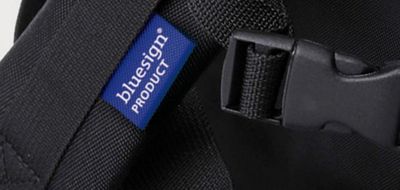Bluesign - The eco-label for a sustainable textile industry
If you value a resource-saving and low-emission production of your clothing, you should look out for the small blue bluesign® label. Because the bluesign® system is committed to keeping the environmental impact as low as possible throughout the entire production process.
Since 2000, the Swiss bluesign® system has been used to test not only the final products themselves, but also the individual phases of production as well as all the agents used. The aim is to work together with all players in the garment industry to achieve an environmentally friendly production of textiles without harmful substances. To this end, the entire production process is monitored to ensure that specified guidelines and consumer protection requirements are observed.
The 5 bluesign® principles

These five principles result in concrete criteria for the entire textile supply chain. From ingredients to manufacturing processes and end products, the bluesign® criteria define the guidelines for textile companies. The components and processes used are tested prior to production through so-called Input Stream Management. In this way, the bluesign® system guarantees the consumer a safely manufactured product without harmful substances.
How to find bluesign® products?
Customers recognise the tested textiles by two different seals. Chemical products and textiles that are used in production and fulfil the criteria are bluesign® approved. If all components of the final product meet the bluesign® criteria, it is awarded the bluesign® product seal.
Since nature lovers in particular value environmental protection, outdoor brands in particular are very interested in the bluesign® system. Vaude and Patagonia have been working with bluesign® from the very beginning, but Schöffel, Bergans, Halti, Haglöfs, Helly Hansen, La Sportiva, Mammut, Marmot or Maloja are also among the system partners.

